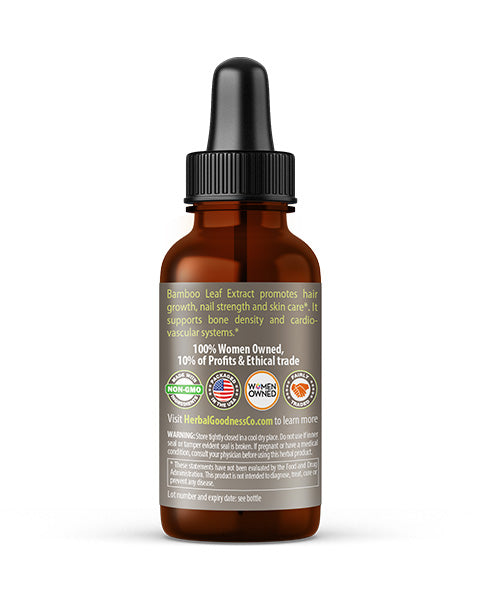Can't Sleep? 4 Tips to Improve Muscle Relaxation and Rejuvenation | Herbal Goodness
Lie in bed, close your eyes and fall asleep. It seems like an easy process, but for a lot of people it's not quite like that. Whether due to occasional stress or sleep disorders, many people end up tossing and turning on their beds without actually being able to sleep. This is why it's not uncommon to see people taking melatonin supplements to promote sleep. Another natural sleeping aid product is Guava Leaf Extract from Herbal Goodness. Who doesn't look forward to a good night's sleep anyway? Not only is sleep important on a mental level, but it also gives your muscles the rest and rejuvenation time they need. Not getting enough sleep could disrupt your daily routine, make you unproductive, and sometimes docile. In this article, we share 4 tips that can help you relax and rejuvenate your muscles, hence boosting your sleep patterns.
Breathe
Deep breathing exercises help to relax the body and lower the heart rate, making the brain understand that it is time to slow down, helping to fall asleep faster. How can you achieve this? Focus on controlling your breath; inhale deeply and for a long time. Inhale deeply as if directing the air towards the center of the chest, repeat five times in a row. Exhale slowly so that your chest deflates little by little. As you exhale, imagine that you are expelling all the negative energy from your body. Feel all your muscles relax. This simple exercise with calming properties will instantly bring you a feeling of relaxation, help you fight against stress, and improve your heart health. Breathing like this will help you boost the connection between your mind and body, and focus your energy on relaxing your body's muscles.
Listen to relaxing music
"Music therapy is safe and easy to administer and can effectively boost sleep quality among older adults, particularly those who listen to more sedating music for a period of at least four weeks." This conclusion is from a recent study published in the Journal of the American Geriatrics Society, which concluded that adults over 60 years of age who listen to music before or while sleeping achieve better sleep than those who do not. Relaxing music showed a more significant change than more rhythmic music in the studies. That is, to have better effects it is necessary to choose the right playlist, for example one that contains sounds of nature. Rain, babbling brooks, storms, crashing waves – these are all kinds of nature sounds that have been recorded to play while you sleep. Some have meditation music, usually a soft piano sound accompanying the sounds, but many times it's just the sounds of nature lulling you to sleep. Inferentially, listening to calming music at nap time gets you in the mood and aids better sleep for individuals irrespective of their ages.
Consider meditation
Meditation is not only very effective in getting rid of your stress, but also in optimizing your muscle relaxation. Practicing meditation just before going to bed will allow you to focus on your energy and rejuvenate more effectively. Turn off the lights, and sit cross-legged or lie on your back and focus on your breathing. Try to completely relax your mind and clear your head. You need to stay cantered, focused on the present instead of thinking about the future. Notice how the sheets feel, the noises outside, and the smells in the room. Once you have lost your thoughts, visualize the tension in your muscles disappearing and your energy moving towards them. Once you have visualized each of your muscle groups, take a few deep breaths and slowly rise up.
Do a light exercise
Exercise is an excellent stress reliever, with incredible benefits, especially for people who can't sleep. Speaking of exercises, stretching is one of the proven relaxation techniques to sleep well. Of course, one of low intensity, to “loosen up” the muscles. Like yoga, stretching the muscles has meditative and relaxing effects on the body and mind, as well as serving as a kind of “transition” for the body. We spend, on average, more than 9 hours a day sitting, a naturally uncomfortable position. We are sometimes unaware that we have spent the whole day with our shoulders tensed or tucked in. Stretching, however, prepares us to lie down without feeling that something “does not fit”. You can go further by massaging your neck with your fingertips in circular motions, starting at the back of your neck and working down and out to the sides. You can also adopt the progressive muscle relaxation exercise, where you tighten a muscle group at a time, then release the tension. Doing PMR daily is also a relaxation therapy that helps to manage your inability to sleep
Drift Into Restful Sleep with Herbal Goodness
Tired of tossing and turning at night? Along with breathing exercises, relaxing music, meditation, and light stretches, nature has a solution too. Our Guava Leaf Extract – Organic Liquid is crafted from the nutrient-rich guava super fruit and designed to support calmness, relaxation, and restful sleep.
Known for its natural ability to help you stay in a deep sleep state longer, Guava Leaf Extract is the perfect bedtime companion. Wake up feeling refreshed, rejuvenated, and ready to take on the day.
Pair your nightly wind-down routine with the goodness of guava.
Shop Guava Leaf Extract Now and experience bedtime the Herbal Goodness way—peaceful, restorative, and natural.
Are these tips useful? Like, comment, and share.
Related: Five Digestive System Tips for the New Year 2023 | Herbal Goodness
ii 6 Toxic Everyday Habits that Make You Age Faster | Herbal Goodness
References
https://casper.com/blog/what-to-do-when-you-cant-sleep/. What To Do When You Can’t Sleep: 21 Researched Tips.
https://www.mayoclinic.org/drugs-supplements-melatonin/art-20363071. Melatonin
https://agsjournals.onlinelibrary.wiley.com/doi/10.1111/jgs.17149. Effect of music therapy on improving sleep quality in older adults: A systematic review and meta-analysis.
https://www.webmd.com/sleep-disorders/muscle-relaxation-for-stress-insomnia. Progressive Muscle Relaxation for Stress and Insomnia.













